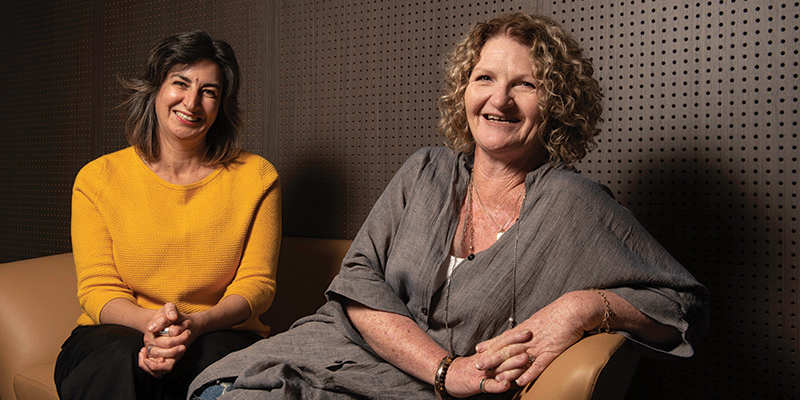Search
Research
“Shame, Doubt and Sadness”: A Qualitative Investigation of the Experience of Self-Stigma in Adolescents with Diverse Sexual OrientationsMany adolescents with diverse sexual orientations lead happy and fulfilled lives. However, evidence consistently suggests elevated rates of mental health difficulties in this population relative to heterosexual peers, and internalization of stigma (i.e., self-stigma) is implicated in these elevated rates. This study aimed to understand and describe the lived experience of self-stigma with respect to participants’ sexual orientations.
Research
Cannabidiol for at risk for psychosis youth: A randomized controlled trialNo biological treatment has been firmly established for the at-risk stage of psychotic disorder. In this study we aim to test if subthreshold psychotic symptoms can be effectively treated with cannabidiol (CBD), a non-psychoactive compound of the plant Cannabis sativa.
Research
Toxoplasma gondii, Herpesviridae and long-term risk of transition to first-episode psychosis in an ultra high-risk sampleUltra high-risk (UHR) criteria were introduced to identify people at imminent risk of developing psychosis. To improve prognostic accuracy, additional clinical and biological risk factors have been researched.
Research
Development of a Self-Harm Monitoring System for VictoriaThe prevention of suicide and suicide-related behaviour are key policy priorities in Australia and internationally. The World Health Organization has recommended that member states develop self-harm surveillance systems as part of their suicide prevention efforts. This is also a priority under Australia's Fifth National Mental Health and Suicide Prevention Plan. The aim of this paper is to describe the development of a state-based self-harm monitoring system in Victoria, Australia. In this system, data on all self-harm presentations are collected from eight hospital emergency departments in Victoria. A natural language processing classifier that uses machine learning to identify episodes of self-harm is currently being developed.
Research
The role of coping in the association between subclinical psychotic experiences and functioning: A within study replication in two independent adolescent samplesThe within study replication consistently found that coping style mediates subclinical psychotic experiences and psychosocial functioning
Research
Psychotic experiences and their significanceClinical perspective from the ultra high risk (UHR) paradigm, that aims to identify people at high risk of psychotic disorder
Research
Response to Comment on Lin et al. Risk Factors for Decline in IQ in Youth With Type 1 Diabetes Over the 12 Years From Diagnosis/Illness OnsetThis editorial response addresses each of the concerns raised by Lin et al. RE: Risk Factors for Decline in IQ in Youth With Type 1 Diabetes Over the 12...
Research
A systematic review: Identifying the prevalence rates of psychiatric disorder in Australia's Indigenous populationsA systematic review: Identifying the prevalence rates of psychiatric disorder in Australia's Indigenous populations.

News & Events
Healthway supports innovative mental health, physical activity research at The KidsThe Kids Research Institute Australia and The University of Western Australia researchers have been awarded more than $1 million in funding from Healthway, for projects to improve the mental health of LGBTQA+ young people, encourage early physical activity in childcare centres and create healthier local environme

News & Events
Embracing the mental health of our children and young peopleEmbrace – a new research collaboration based at The Kids – will bring a new focus to understanding and improving the mental health of children and young people.
